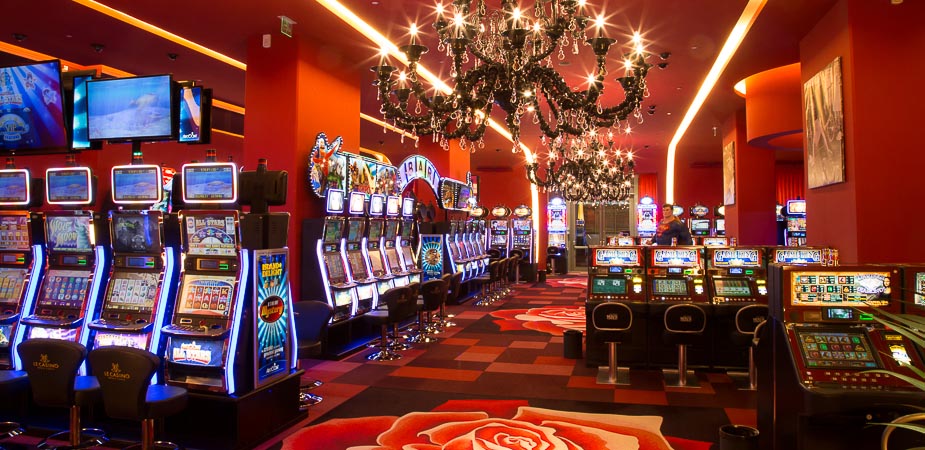
In the world of gambling, where chance and strategy intersect, a unique tapestry of beliefs manifests—one that weaves together luck, fate, and the enigmatic nature of casino games. Casinos, bustling with excitement and anticipation, are not just places for placing bets; they are also arenas in which superstitions thrive. From the novice player to the seasoned gambler, these mysterious practices often shape how individuals approach the games they play, believing that their actions can affect the outcome in ways that go beyond mere probability.
As players gather around roulette wheels, blackjack tables, and slot machines, the atmosphere is thick with stories of lucky charms, rituals, and codified behavior that defy logic yet provide a sense of comfort. Whether it’s wearing a specific outfit, following a particular sequence of bets, or even avoiding certain numbers, the attachment to various superstitions reflects a deep-rooted desire to master the uncontrollable. This article delves into the captivating world of casino game superstitions, examining the beliefs that both entertain and mystify those who dare to play.
Historical Beginnings of Superstitions
Gambling activities have long been connected with an host of superstitions that can be traced to ancient cultures. The origins of these notions can be connected to humanity’s fundamental need to influence the random outcomes associated with chance and chance. In ancient civilizations, games of chance were often connected to religious practices. Players would call upon aid or ask for favor from deities, believing that their actions could change the outcomes in their favor. New88 đăng nhập This foundation laid the groundwork for the variety of superstitions that developed as gambling evolved over time.
During the medieval period, gambling became a common hobby across the continent, and with it, a colorful tapestry of superstitions emerged. Participants adopted various rituals and charms, believing they could affect the outcome of games. The significance of digits, in particular, emerged to manifest in superstitions around card games and dice. The number 7 was often considered auspicious, while different numbers carried negative connotations. These ideas mirrored the cultural contexts of the time, changing as they transferred through generations and transformed to new gaming environments.
As gaming establishments developed in the 1600s, particularly in the Italian peninsula and France, the atmosphere surrounding betting became steeped in mystique. The growing availability of gambling games allowed for the dissemination and variation of superstitions among players. Concepts like charmed charms, special seating arrangements, and rituals gained prominence, creating a unique culture within gambling establishments. As these customs continued to thrive, they became integral to the essence of gambling games, illustrating how the past and society shape the convictions that influence how players engage with chance.
Popular Gambling Myths
Superstitions surrounding casino games are plentiful and diverse, reflecting the hopes and anxieties of gamblers as they participate in chance-based games. One of the most prevalent beliefs is that certain digits bring fortune or bad luck. For example, the number 7 is often seen as a favorable number, frequently sought after by players looking for a positive result. Conversely, the digit 13 is routinely considered unlucky, leading many players to avoid it during their gaming periods.
A common superstition relates to rituals that players believe can affect their odds. Whether blowing gently on dice before a roll, using a particular hand to place a wager, or even wearing particular items of attire, many people feel that these actions can sway luck in their benefit. These rituals offer a feeling of power in an otherwise random environment, strengthening the idea that luck can be created through individual convictions and customs.
Lastly, the ambiance and vibe of the casino itself contributes to myths. Many gamblers suggest that the presence of specific symbols, such as four-leaf clovers or lucky tokens, can enhance their chances of winning. Additionally, gamblers might hold to the notion that winning streaks can be halted by mundane events, such as someone passing by or a accident at the table. The shared environment in a casino can amplify these superstitions, creating a shared culture of superstitions that transcends individual encounters.
Impact of Superstitions on Players
Superstitions play a crucial role in the psychology of gamblers, often affecting their behavior and decision-making. Numerous gamblers believe that fortune can be manipulated through different rituals, such as donning a talisman, selecting specific colors, or steering clear of particular digits. This dependence on superstitions can create a sense of control in an environment that is intrinsically unpredictable. Players often feel more confident and engaged when they believe that their actions could sway the outcome of a game in their favor.
The influence of these superstitions extends beyond singular players, affecting the overall atmosphere within the casino. For instance, a player who believes in the luck of a particular slot machine might draw a crowd, as onlookers are intrigued by their apparent success. This shared belief can heighten excitement and create a lively environment, leading to an interesting experience even for those who may not necessarily be believers themselves. The excitement around certain games can lead to higher participation and longer playing sessions, supporting the casino’s vibrant social scene.
In some instances, superstitions can lead to detrimental effects for players. Depending too much on rituals can result in poor gambling decisions, as some may overlook basic strategies in favor of baseless beliefs. Additionally, the pressure to perform rituals may heighten anxiety and stress levels, detracting from the pleasure of the experience. Ultimately, while superstitions can enhance the excitement of playing casino games, they can also lead to foolish choices that overshadow the fun and amusement intended in the casino experience.
